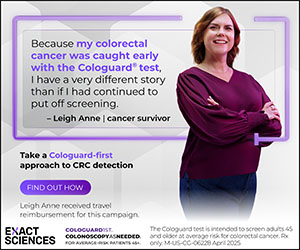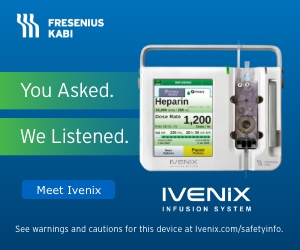Lab ownership is a key driver of health system growth
Why retain your lab? Here are 5 data-driven reasons why retaining your hospital lab can make a powerful impact on the financial well-being of the entire health system.

- Improve Staffing Through Team Engagement and Accountability
- New Paradigm in Post-resection Risk Assessment and Treatment Planning
- Improving U.S. Healthcare Through the Lens of Global Solutions
- Consultants Can Offer Fresh Perspective
Improve Staffing Through Team Engagement and Accountability
For the past several years, healthcare executives have consistently listed workforce issues as one of their most challenging problems. As such, mentoring and developing staff are important leadership responsibilities that can help an organization improve and move beyond staffing issues, according to Burl Stamp, FACHE, president/founder, of performance improvement company Stamp & Chase and faculty with ACHE. He also emphasizes improving staff engagement and teamwork to lower turnover and improve leader relationships with employees.
Stamp’s in-the-trenches experience with health systems correlates with a 2023 Gallup study that indicates 80% of employees who received “meaningful feedback” within the past week were fully engaged at work. The results also show that leaders can have a multiplier effect on success when they help everyone on their team become more successful and productive.
“Some leaders worry that if they hold staff accountable, engagement scores will drop,” Stamp said at a recent ACHE seminar in Dubai, UAE. “In fact, front-line staff tell us that what they want is balanced feedback—both positive and constructive—to help them develop and become more successful. That improves their level of engagement and commitment to their team and the organization.”
Stamp is one of dozens of expert ACHE faculty who travel to hospitals and health systems across the country to facilitate in-person, customizable and cost-effective learning opportunities for staff.
Learn more about Stamp’s topic, as well as Customized Learning for Organizations programs that ACHE offers for your leadership team onsite. For more information, email Martijn van Oort, director, business development, ACHE Learn.
New Paradigm in Post-resection Risk Assessment and Treatment Planning
Oncologists know that at the end of even the most advanced treatment regimen, a patient may be left with small clusters of cells that remain tumorigenic. Detecting the presence of such cells within tumors is the goal of minimal residual disease testing.
Haystack MRD™ from Quest Diagnostics is a tumor-informed, next-generation minimal residual disease test that detects ultralow levels of circulating tumor DNA to uncover residual disease. Exceptionally sensitive, circulating tumor DNA detection can provide confidence when making decisions for personalized solid tumor treatment management.
Detection of circulating tumor DNA has been reported to be more sensitive and specific than carcinoembryonic antigen testing, a mainstay of risk detection after tumor resection. Circulating tumor DNA testing is a better predictor of recurrence and radiologic response, and it provides a longer lead time to recurrence than CEA. Importantly, minimal residual disease testing can reduce the need for adjuvant chemotherapy in patients with no detectable levels of circulating tumor DNA after surgery, without compromising long-term survival.
In a recent webinar, Doug Flora, MD, oncologist at Saint Elizabeth Healthcare Edgewood (Ky.) Cancer Center, said, “Sometimes people are concerned about the cost of this testing, and that is a real concern, because we need to be responsible stewards of the healthcare dollar. But in the event that you can spare a patient chemotherapy, it also has an opportunity for cost savings.”
Learn more about minimal residual disease testing and watch the full webinar here.
Quest Diagnostics, an ACHE Premier Corporate Partner, provided the content above.
Improving U.S. Healthcare Through the Lens of Global Solutions
The growing complexity of patient needs, the dizzying pace of technological advancements, new policies that affect reimbursement and grant funding, and increasing costs demand creative solutions. A look at what others are doing around the world offers U.S. healthcare leaders a unique opportunity to drive innovation, improve cost-efficiency, and reimagine healthcare delivery through a lens of global inspiration.
The Summer issue of Frontiers of Health Management Services examines healthcare leadership, innovation, sustainability and patient safety on a global scale. Authors Ronald Lavater, FACHE, Sylvia Basterrechea, and Andrew N. Garman, PsyD, explore the role of the International Hospital Federation as a hub for global healthcare leadership in their article “International Healthcare Leadership: The Global Pursuit of a Healthier Future.”
The IHF fosters collaboration, knowledge sharing and the development of solutions to the interconnected challenges facing healthcare systems worldwide. One key border-spanning challenge is environmental sustainability. This article features four healthcare leaders in Columbia, the United Arab Emirates, Singapore and East Africa (serving Kenya, Tanzania and Uganda), who collectively emphasize the universality of healthcare challenges, the value of international collaboration and learning, and the growing importance of environmental sustainability as key aspects of their leadership perspectives.
Read more in the current issue of Frontiers of Health Services Management.
Consultants Can Offer Fresh Perspective
If your organization is seeking an external professional opinion, the Healthcare Consultant Forum Directory lists ACHE members who offer advisory services.
These subject matter experts offer consultation on general healthcare leadership issues, as well as specialized topics, including interim management, short-term financing and strategic business planning. These advisors can be contacted directly about their services.
Learn more about the Healthcare Consultants Forum here. To be listed in the directory, contact ACHE Customer Service at (312) 424-9400 or email contact@ache.org.
ACHE does not endorse the firms or individuals listed in the directory.


